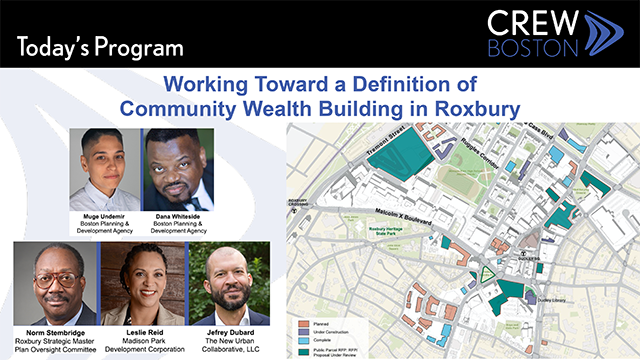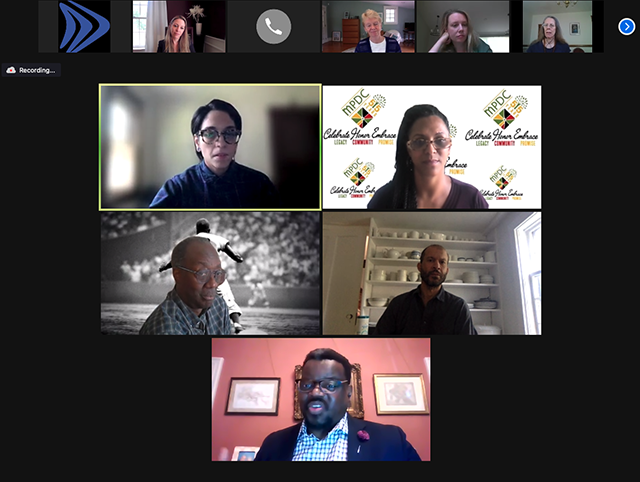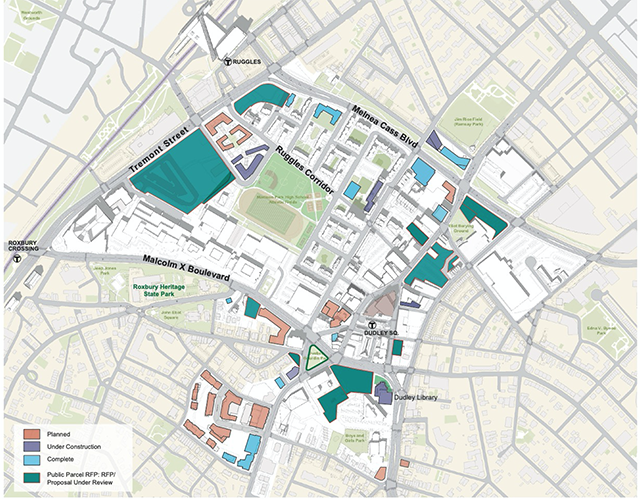On May 19
th we hosted deeper dive into the conversations we’ve had in the past, focused on how stakeholders, real estate professionals, and community development partners understand wealth creation and economic development in the City of Boston. Our panelists consisted of city agents, developers, and neighborhood activists, and the conversation focused upon wealth and equity-building in the Roxbury neighborhood of Boston as well as the current revitalization efforts in Nubian Square (formerly Dudley Square.) Roxbury has long been home to activists, civil rights leaders, artists and musicians; Nubian Square is the geographic heart of the city and is intrinsic to the health and well-being of Boston as a whole. Some major themes that were discussed:
What it means to be a stakeholder in Roxbury:
- The stakeholders in the neighborhood are largely not people who are part of the community, and that needs to be at the forefront of what they do.
- Equity means acknowledging and righting past wrongs, not just money.
- We need to find opportunities to get people that have historically been left out of the process to be able to participate in the process and support organic growth within the neighborhood.
- Our responsibility should go beyond simply building and selling/leasing. We need to actively participate in how we uplift our community.
- The concepts of wealth and equity can’t be separate from inclusion.
- We need to make things more sustainable in all neighborhoods - make sure that there are fairer outcomes based on different folks’ situations.
- There has been exponential disinvestment in this community but the spark is still there.
- Look at rental and home ownership: people in Roxbury have systematically been shut out of home ownership opportunities. Pay attention to small businesses and make sure there is a place for them. When businesses own where they live, they are invested.
- Opportunity to find the intersection between equity and equity.
- We have focused a lot on the built environment. This isn’t just about what we build – must think in a reparative way. Until we address the disparities in wealth, we are not going to have the economic activity to support growth.
- How do we engender policies that specifically address how black people have been excluded from the housing market. Business cannot thrive when economic activity is throttled because people don’t have access to wealth.
Agency: What is working today or what we could be doing in terms of wealth creation.
- Righting the wrongs of past policies and moving from just building to active engagement and inclusion
- There needs to be continued engagement and growth for what’s actually built on these parcels, not just the development of the parcels themselves.
- People of color have largely been shut out from development. We need to find opportunities for developers to participate in development of public land and provide resources and tools necessary for people to thrive and grow.
- Finding land that was once taken from Roxbury and returning it back to the neighborhood. Opp to work with the community and think about what economic vitality looks like in the communities they’re in. Each neighborhood has different ways to look at this concept.
- Providing people with the tools to participate and act independently
- Jobs would lead to better incomes and better outcomes (more productive, higher skilled, can contribute to the neighborhood and maintain stability.) Work with local developers and the city.
- It always comes back to equity and ownership. The people who decide how much housing gets built are not usually the people who live in the community. Ownership and assets are the key to agency – to be able to make and enforce decisions.
- Many of the properties in Nubian Square that are in disrepair are owned by those with no connection to the neighborhood. We can’t expect those people to care enough to create jobs and translate the neighborhood into what it needs to be.
- A mark of a healthy neighborhood: you don’t have to leave your community for anything you need. If we reflect on Nubian Square, the residents do have to leave for many things they need, which is not empowerment and agency. We won’t find equity and empowerment until we can economically sustain ourselves.
Policy change:
- Take past written policies of exclusion (redlining, disinvestment) and write new policies to support equity and inclusion. Roxbury and surrounding communities need to be able to contribute to this reinvigorated vitality, policies and collaboration will facilitate this.
- One piece of the vitality for this district is how we think of the infrastructure that supports all of it. None of it’s going to work if people can’t get to and from the district easily.
- Home ownership in particular is a form of wealth creation: putting a stake in the ground. The same can be said for small business development.
- City of Boston can play a role increasing access to affordable housing. The effectiveness of infrastructure and public realm is going to have a marked effect on the economic vitality of a neighborhood. Intentionality is important.
- As a city we need to keep adapting. Not just 1/3 affordable housing but also diversity and inclusion criteria
- There is a Roxbury parcel (P3) that has been vacant for a long time. Perhaps initiate training programs as a requirement for development of public land. Smaller developers may not have access to these larger parcels. How do we make these into affordable commercial spaces, and not just housing?
- The pandemic has caused the failure of a lot of small business, how to we adapt our policies to best serve those small businesses.
- 40-50 Warren Street as an example of intentional mixed-use development in Nubian Square (Jefrey Dubard of The New Urban Collaborative, LLC is the developer). As a private developer, he is held to certain standards on projects, but once the project is built, those are gone and the ultimate users could be privileged. In this case he has committed to WMBE’s (Minority/Women Business Enterprises) that are local and below market simply because he decided to do it, not because there were any requirements to do it. We need to consider some requirements beyond just the private development phase – that’s how you empower a neighborhood.
We were only able to scratch the surface in our one-hour time frame but we anticipate more conversations like this one. If you would like more information on the development of Nubian Square, please consider registering at
www.empowernubian.comto sign up for regular community talks about how to build Nubian Square to empower and elevate. All are welcome to participate.


